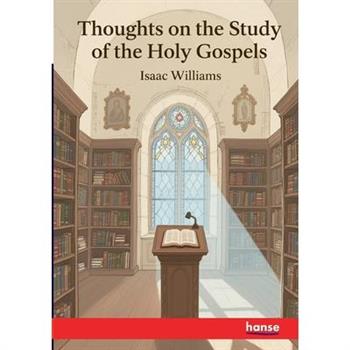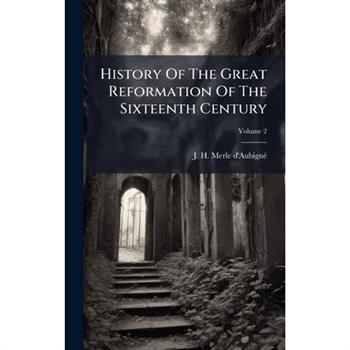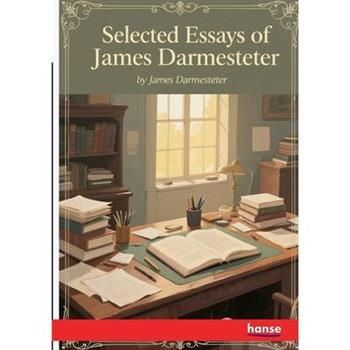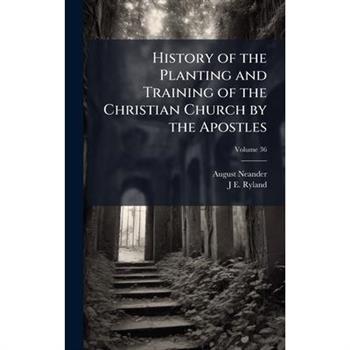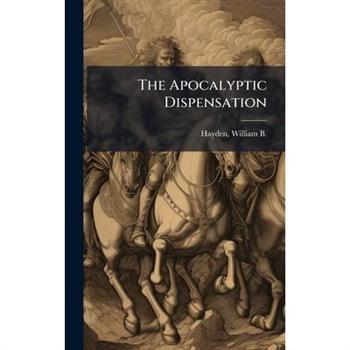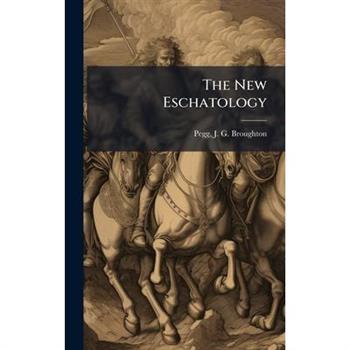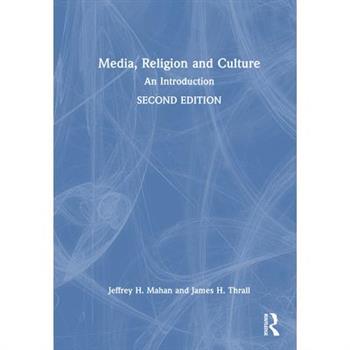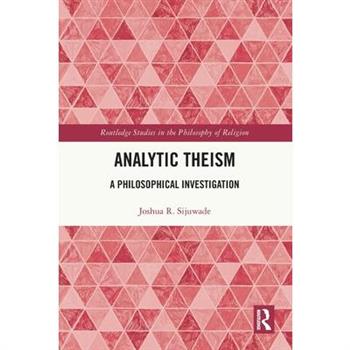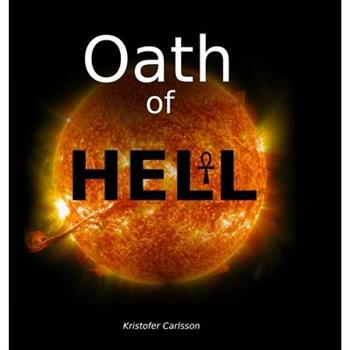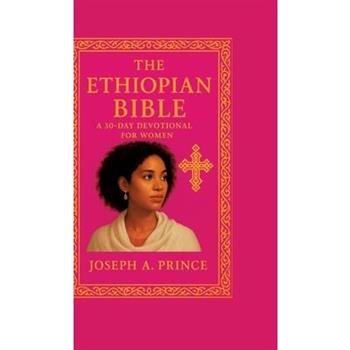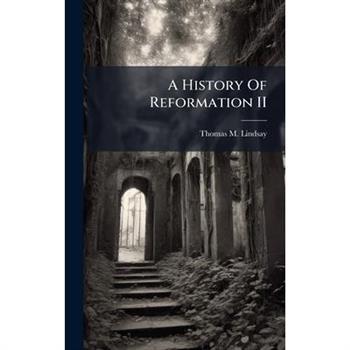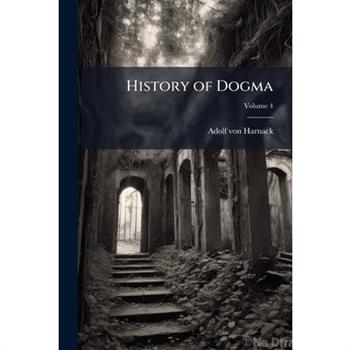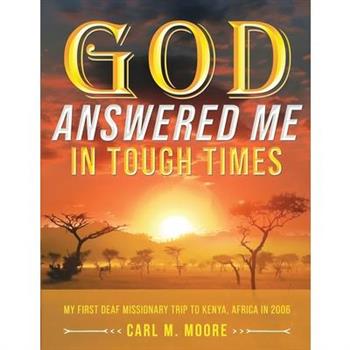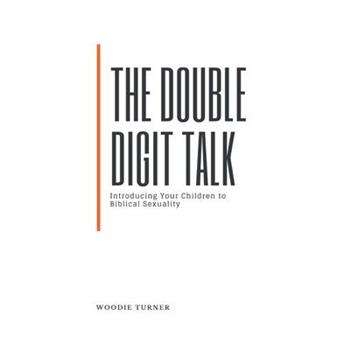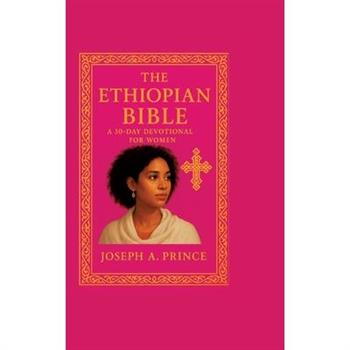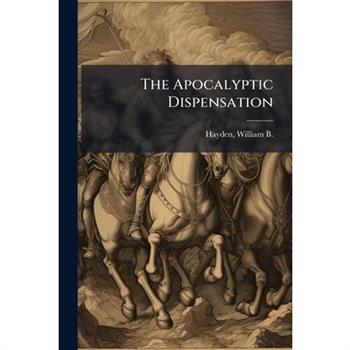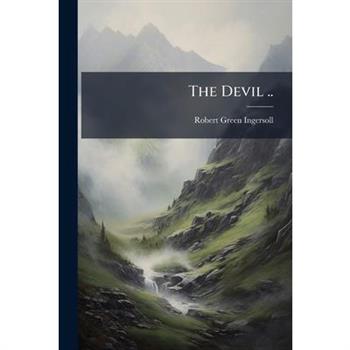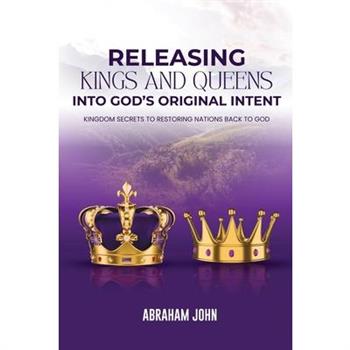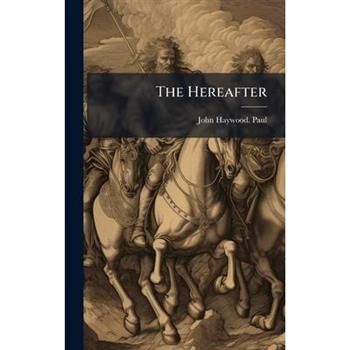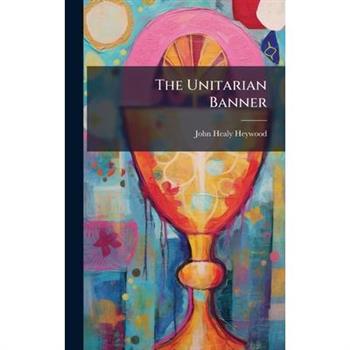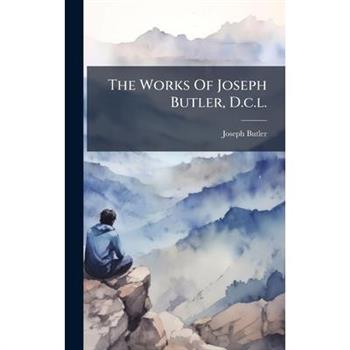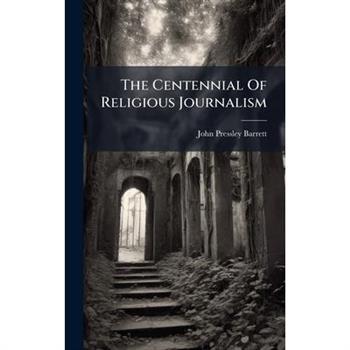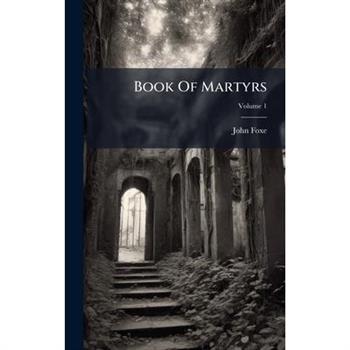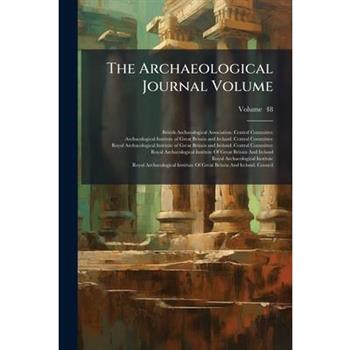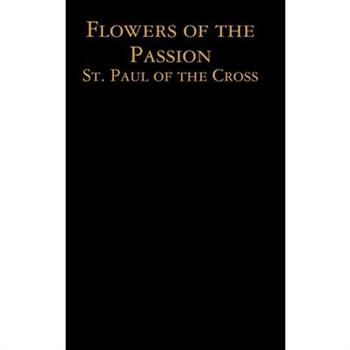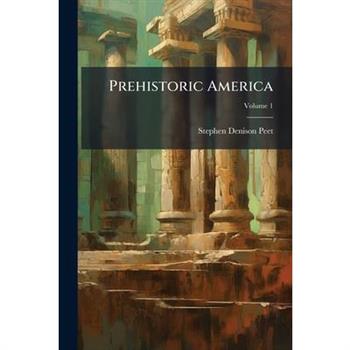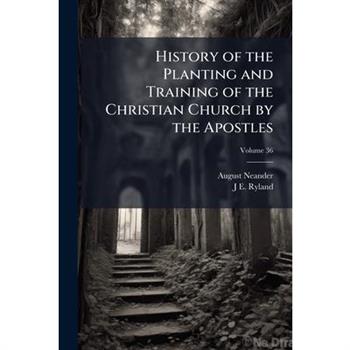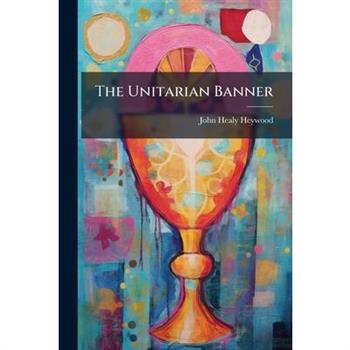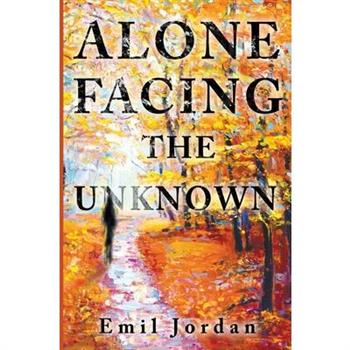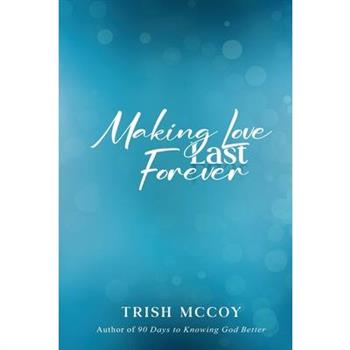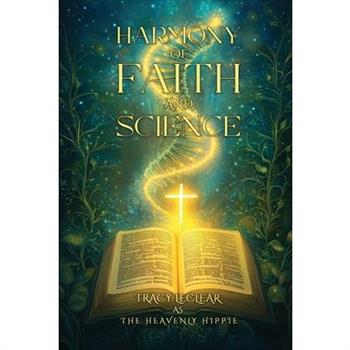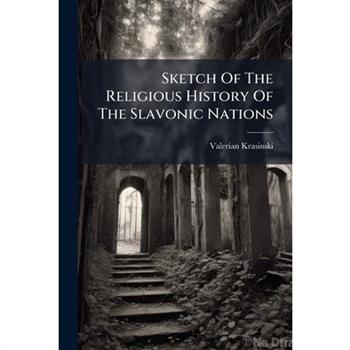Thoughts on the Study of the Holy Gospels
In "Thoughts on the Study of the Holy Gospels" and "Devotional Commentary on the Gospel Narrative", Isaac Williams offers a profound and contemplative exploration of the life and teachings of Jesus Christ. Through thoughtful reflections and devotional insights, he invites readers to deepen their understanding of the Gospel stories, emphasizing their spiritual significance and relevance for personal faith. Williams's work encourages a heartfelt engagement with Scripture, blending scholarly observation with devotional practice to inspire a more intimate and transformative connection to the divine message. Thoughts on the Study of the Holy Gospels - Devotional Commentary on the Gospel Narrative is an unchanged, high-quality reprint of the original edition of 1876.
History of Dogma
Explore the intricate development of Christian doctrine with Adolf von Harnack's monumental "History of Dogma, Volume 4." This seminal work delves into the historical evolution of theological thought, tracing the transformation of early Christian beliefs into formalized dogma. Harnack's meticulous scholarship examines the intellectual and socio-political forces that shaped Christian doctrine, offering readers a comprehensive understanding of the foundations of Christian theology. This volume provides invaluable insights for theologians, historians, and anyone interested in the intellectual history of Christianity. Discover how key doctrines were formulated and debated, and gain a deeper appreciation for the rich and complex tapestry of Christian thought. "History of Dogma" remains an essential resource for understanding the historical and intellectual roots of Christian belief.This work has been selected by scholars as being culturally important, and is part of the knowledge base of civilization as we know it. This work was reproduced from the original artifact, and remains as true to the original work as possible. Therefore, you will see the original copyright references, library stamps (as most of these works have been housed in our most important libraries around the world), and other notations in the work.This work is in the public domain in the United States of America, and possibly other nations. Within the United States, you may freely copy and distribute this work, as no entity (individual or corporate) has a copyright on the body of the work.As a reproduction of a historical artifact, this work may contain missing or blurred pages, poor pictures, errant marks, etc. Scholars believe, and we concur, that this work is important enough to be preserved, reproduced, and made generally available to the public. We appreciate your support of the preservation process, and thank you for being an important part of keeping this knowledge alive and relevant.
History Of The Great Reformation Of The Sixteenth Century
History Of The Great Reformation Of The Sixteenth Century, Volume 2 by J. H. Merle d'Aubign矇, delves into the heart of one of history's most transformative periods. This volume continues the detailed narrative of the Reformation, exploring its profound impact on religion, politics, and society in sixteenth-century Europe. D'Aubign矇's meticulous scholarship and engaging writing style bring to life the key figures and pivotal events that shaped this era. From theological debates to political maneuvering, this book offers readers a comprehensive understanding of the forces that drove the Reformation and its lasting legacy. A valuable resource for scholars, students, and anyone interested in the history of Christianity and the rise of modern Europe.This work has been selected by scholars as being culturally important, and is part of the knowledge base of civilization as we know it. This work was reproduced from the original artifact, and remains as true to the original work as possible. Therefore, you will see the original copyright references, library stamps (as most of these works have been housed in our most important libraries around the world), and other notations in the work.This work is in the public domain in the United States of America, and possibly other nations. Within the United States, you may freely copy and distribute this work, as no entity (individual or corporate) has a copyright on the body of the work.As a reproduction of a historical artifact, this work may contain missing or blurred pages, poor pictures, errant marks, etc. Scholars believe, and we concur, that this work is important enough to be preserved, reproduced, and made generally available to the public. We appreciate your support of the preservation process, and thank you for being an important part of keeping this knowledge alive and relevant.
History of the Planting and Training of the Christian Church by the Apostles
"History of the Planting and Training of the Christian Church by the Apostles," Volume 36, offers a detailed exploration of the early Christian church. Authored by August Neander and J. E. Ryland, this volume delves into the formative years of Christianity, examining the roles and influences of the apostles. First published in 1842, this historical work provides insights into the establishment and development of Christian communities and doctrines. Neander's meticulous research and analysis make this book an invaluable resource for understanding the historical context of early Christianity. Readers interested in church history, religious studies, and the lives of the apostles will find this volume both informative and enlightening.This work has been selected by scholars as being culturally important, and is part of the knowledge base of civilization as we know it. This work was reproduced from the original artifact, and remains as true to the original work as possible. Therefore, you will see the original copyright references, library stamps (as most of these works have been housed in our most important libraries around the world), and other notations in the work.This work is in the public domain in the United States of America, and possibly other nations. Within the United States, you may freely copy and distribute this work, as no entity (individual or corporate) has a copyright on the body of the work.As a reproduction of a historical artifact, this work may contain missing or blurred pages, poor pictures, errant marks, etc. Scholars believe, and we concur, that this work is important enough to be preserved, reproduced, and made generally available to the public. We appreciate your support of the preservation process, and thank you for being an important part of keeping this knowledge alive and relevant.
The Apocalyptic Dispensation
"The Apocalyptic Dispensation" by William B. Hayden explores themes of eschatology and biblical prophecy within a theological framework. Hayden, a prominent figure associated with the New Jerusalem Church, delves into interpretations of apocalyptic literature, offering insights into the nature of divine dispensations and their significance. The book provides a detailed analysis of prophetic texts, examining their historical context and their relevance to contemporary spiritual understanding. Hayden's work aims to illuminate the pathways of faith and the unfolding of divine purpose, making it a valuable resource for those interested in eschatological studies and theological inquiry.This work has been selected by scholars as being culturally important, and is part of the knowledge base of civilization as we know it. This work was reproduced from the original artifact, and remains as true to the original work as possible. Therefore, you will see the original copyright references, library stamps (as most of these works have been housed in our most important libraries around the world), and other notations in the work.This work is in the public domain in the United States of America, and possibly other nations. Within the United States, you may freely copy and distribute this work, as no entity (individual or corporate) has a copyright on the body of the work.As a reproduction of a historical artifact, this work may contain missing or blurred pages, poor pictures, errant marks, etc. Scholars believe, and we concur, that this work is important enough to be preserved, reproduced, and made generally available to the public. We appreciate your support of the preservation process, and thank you for being an important part of keeping this knowledge alive and relevant.
The New Eschatology
"The New Eschatology" presents a detailed exploration of eschatological themes from a theological perspective. J. G. Broughton Pegg delves into doctrines concerning the end times, judgment, and the ultimate destiny of humanity. This work provides a careful examination of traditional views while also proposing fresh insights into complex theological questions. Readers interested in religious studies and Christian theology will find this book a valuable resource for understanding historical and contemporary perspectives on eschatology. Pegg's thoughtful analysis makes "The New Eschatology" a significant contribution to theological literature.This work has been selected by scholars as being culturally important, and is part of the knowledge base of civilization as we know it. This work was reproduced from the original artifact, and remains as true to the original work as possible. Therefore, you will see the original copyright references, library stamps (as most of these works have been housed in our most important libraries around the world), and other notations in the work.This work is in the public domain in the United States of America, and possibly other nations. Within the United States, you may freely copy and distribute this work, as no entity (individual or corporate) has a copyright on the body of the work.As a reproduction of a historical artifact, this work may contain missing or blurred pages, poor pictures, errant marks, etc. Scholars believe, and we concur, that this work is important enough to be preserved, reproduced, and made generally available to the public. We appreciate your support of the preservation process, and thank you for being an important part of keeping this knowledge alive and relevant.
Media, Religion and Culture
Religion has always been shaped by the media of its time. Religious individuals, communities, and institutions use media as tools to communicate, but also as locations where they construct and express identity, practice religion, and build community. This lively book offers a comprehensive introduction to the contemporary field of religion, media, and culture. It explores the religious content of media texts and the reception of those texts by religious consumers who appropriate and reuse them in their own religious work. how new forms of media provide fresh locations for new religious voices and identities to emerge. Thoroughly updated, this second edition of Media, Religion and Culture features case study examples from both established and new religions, and each chapter is followed by insightful Reflections from leading scholars in the field. Illustrated throughout, the book also contains discussion questions and a glossary of key terms.
Analytic Theism
This book explores and develops a new philosophical argument for the existence of God from metaphysics. In doing so, it connects debates in the field of contemporary metaphysics with that of analytic philosophy of religion.
Media, Religion and Culture
Religion has always been shaped by the media of its time. Religious individuals, communities, and institutions use media as tools to communicate, but also as locations where they construct and express identity, practice religion, and build community. This lively book offers a comprehensive introduction to the contemporary field of religion, media, and culture. It explores the religious content of media texts and the reception of those texts by religious consumers who appropriate and reuse them in their own religious work. how new forms of media provide fresh locations for new religious voices and identities to emerge. Thoroughly updated, this second edition of Media, Religion and Culture features case study examples from both established and new religions, and each chapter is followed by insightful Reflections from leading scholars in the field. Illustrated throughout, the book also contains discussion questions and a glossary of key terms.
Oath of Hell
This book will make you want to swear an oath to Hell. This natural force of a god, gives you the life you take for granted. When looking into the depth of religion in ancient Mesopotamia, Egyptian mythology, Greek mythology and Abrahamic religions one is dumbfounded by the underlying pattern of a god we turned away from. Each nation corrupted the force of nature with its own quirks, to create a cultural identity while the original message about the importance of swearing a "truth" oath, somewhat got lost. But hidden deep in the semantics, one will find this fiery god again.
The Ethiopian Bible
The Ethiopian Bible Devotional for Women is a 30-day journey through the lives of women in both the traditional Bible and the Ethiopian Orthodox Church's expanded canon. The devotional offers deep reflections on biblical women, such as Queen of Sheba, Mary, Ruth, Deborah, and others, highlighting their faith, courage, wisdom, and legacies. Each day provides a scripture reading, reflection, and prayer to guide women in discovering the strength and purpose in their own spiritual journeys.
Prehistoric America
Delve into the mysteries of ancient civilizations with "Prehistoric America, Volume 1" by Stephen Denison Peet. This foundational work explores the archeological landscape of North America, revealing insights into the lives and cultures of its earliest inhabitants. Discover the evidence of ancient societies through meticulous research and detailed analysis of artifacts and sites. Peet's exploration offers a glimpse into a forgotten past, illuminating the ingenuity and resilience of prehistoric peoples. A valuable resource for historians, archeologists, and anyone fascinated by the deep roots of American heritage. Explore the wonders of "Prehistoric America" and enrich your understanding of the continent's earliest chapters.This work has been selected by scholars as being culturally important, and is part of the knowledge base of civilization as we know it. This work was reproduced from the original artifact, and remains as true to the original work as possible. Therefore, you will see the original copyright references, library stamps (as most of these works have been housed in our most important libraries around the world), and other notations in the work.This work is in the public domain in the United States of America, and possibly other nations. Within the United States, you may freely copy and distribute this work, as no entity (individual or corporate) has a copyright on the body of the work.As a reproduction of a historical artifact, this work may contain missing or blurred pages, poor pictures, errant marks, etc. Scholars believe, and we concur, that this work is important enough to be preserved, reproduced, and made generally available to the public. We appreciate your support of the preservation process, and thank you for being an important part of keeping this knowledge alive and relevant.
A History Of Reformation II
"A History Of Reformation II" by Thomas M. Lindsay offers a detailed examination of the Reformation era. This volume explores the religious, political, and social upheavals that transformed Europe. Delving into the key figures, theological debates, and significant events of the period, Lindsay provides readers with a comprehensive understanding of the forces that shaped modern Christianity and Western civilization. This book serves as an invaluable resource for students, scholars, and anyone interested in the history of religious thought and the making of the modern world.This work has been selected by scholars as being culturally important, and is part of the knowledge base of civilization as we know it. This work was reproduced from the original artifact, and remains as true to the original work as possible. Therefore, you will see the original copyright references, library stamps (as most of these works have been housed in our most important libraries around the world), and other notations in the work.This work is in the public domain in the United States of America, and possibly other nations. Within the United States, you may freely copy and distribute this work, as no entity (individual or corporate) has a copyright on the body of the work.As a reproduction of a historical artifact, this work may contain missing or blurred pages, poor pictures, errant marks, etc. Scholars believe, and we concur, that this work is important enough to be preserved, reproduced, and made generally available to the public. We appreciate your support of the preservation process, and thank you for being an important part of keeping this knowledge alive and relevant.
History of Dogma
Explore the intricate development of Christian doctrine with Adolf von Harnack's monumental "History of Dogma, Volume 4." This seminal work delves into the historical evolution of theological thought, tracing the transformation of early Christian beliefs into formalized dogma. Harnack's meticulous scholarship examines the intellectual and socio-political forces that shaped Christian doctrine, offering readers a comprehensive understanding of the foundations of Christian theology. This volume provides invaluable insights for theologians, historians, and anyone interested in the intellectual history of Christianity. Discover how key doctrines were formulated and debated, and gain a deeper appreciation for the rich and complex tapestry of Christian thought. "History of Dogma" remains an essential resource for understanding the historical and intellectual roots of Christian belief.This work has been selected by scholars as being culturally important, and is part of the knowledge base of civilization as we know it. This work was reproduced from the original artifact, and remains as true to the original work as possible. Therefore, you will see the original copyright references, library stamps (as most of these works have been housed in our most important libraries around the world), and other notations in the work.This work is in the public domain in the United States of America, and possibly other nations. Within the United States, you may freely copy and distribute this work, as no entity (individual or corporate) has a copyright on the body of the work.As a reproduction of a historical artifact, this work may contain missing or blurred pages, poor pictures, errant marks, etc. Scholars believe, and we concur, that this work is important enough to be preserved, reproduced, and made generally available to the public. We appreciate your support of the preservation process, and thank you for being an important part of keeping this knowledge alive and relevant.
Yogini Dasha for Accurate Prediction
Yogini dasa has been strongly recommended by the great Sage Parashar. Yogini is the microscopic view of Vimshottari dasa when applied correctly. The correct method is to link the birth Nakshatra with Yogini dasa. The method of linking and making horoscopes for each birth Nakshatra is given in this book. This method has been tested for over 22 years on thousands of horoscopes and has given excellent results.About the authorHow would an engineer write about Astrology? V.P.Goel is an M.Tech from IIT Kharagpur and B.Tech from BHU. He deconstructs great texts by Parashara, Jaimini and Varahamihira into a set of simple principles and rules that any astrologer can apply to their daily predictions. His books simplify the complex. That's why, Saral Jyotish.Shri V.P.Goel is a former officer of the Indian Engineering Services and has served with the Ministry of Defence, Government of India.After running a successful air conditioning business for over twenty years, he has dedicated his post-retirement days to further original astrology research.In 1999 and 2000, he was awarded Gold Medals for Jyotish Alankar and Jyotish Acharya by the prestigious Bhartiya Vidya Bhavan, New Delhi. He also taught at Bhartiya Vidya Bhavan for 13 years.His deep research in the field of Divisional charts and Dasha over the last 25 years has made him a foremost expert in that field.He has written 27 books in English and Hindi, 12 of which have been translated into Russian.
Free Fall
Felicity Jean's husband, diagnosed with early-onset Dementia and Alzheimer's six years into their second marriage, becomes a stranger after he drifts in and out of another world. An inspirational memoir filled with love, passion, triumph, and defeat gives the reader an honest and raw account of this experience. Felicity navigates this new life and survives due to her faith in God. The thought of a "Life Sentence" ends with a gift of redemption when she receives messages from heaven in a dream after her husband passes over.
Sarah's Secrets
How can a person stand by when something ominous is about to happen to their family?Sarah is a master storyteller. She retells the story you thought you knew with personal anecdotes and a riveting narrative. She brings to life in the 21st century a believable and, more importantly, inspiring story of a person's struggles and how she copes or doesn't cope, but ultimately her faith grows stronger. Everyone who reads this will laugh, cry, and learn from her depiction, which is so real and pertinent today, 4,000 years later. Sarah's Secrets is a fascinating and new artistic approach to the lives of Sarah, Isaac, and Abraham.
God Answered Me in Tough Times
The author used the Holy Bible: Easy to Read Version (ERV). Also, the author wanted to show you with 8 main points of his story from his personal experiences and/or obstacles. So, this book will tell us that: 1. According to 1 Peter 5:7 (ERV), God knew about his worries. 2. According to Psalm 23:1-6 (ERV), God knew about his troubles. 3. According to Psalm 34:5-6; Psalm 34:18-19, Psalm 27:7-10, Psalm 18:5-6 (ERV), God listened his call for help. 4. According to Philippians 4:7 (ERV), God gave him a peace of mind. 5. According to Psalm 9:9-10, Psalm 46:1-3 (ERV), God protected us. 6. According to Psalm 23:1-6 (ERV), God watched over us.7. According to Psalm 46:1-5 (ERV), God was with us.8. According to Romans 8:31-39 (ERV), God is with us.
Predict with Trishamsha
Trishamsha has been given great importance by Parashara. He includes this divisional chart in Shad Varga - the minimum number of charts that must be analyzed before giving any prediction. This chart is used to indicate the evil effects of the horoscope. Apart from Parashara's Trishamsha, this book contains other methods of casting Trishamsha, along with their application. All concepts are supported with ample examples. About the authorHow would an engineer write about Astrology? V.P.Goel is an M.Tech from IIT Kharagpur and B.Tech from BHU. He deconstructs great texts by Parashara, Jaimini and Varahamihira into a set of simple principles and rules that any astrologer can apply to their daily predictions. His books simplify the complex. That's why, Saral Jyotish.Shri V.P.Goel is a former officer of the Indian Engineering Services and has served with the Ministry of Defence, Government of India.After running a successful air conditioning business for over twenty years, he has dedicated his post-retirement days to further original astrology research.In 1999 and 2000, he was awarded Gold Medals for Jyotish Alankar and Jyotish Acharya by the prestigious Bhartiya Vidya Bhavan, New Delhi. He also taught at Bhartiya Vidya Bhavan for 13 years.His deep research in the field of Divisional charts and Dasha over the last 25 years has made him a foremost expert in that field.He has written 27 books in English and Hindi, 12 of which have been translated into Russian.
The Double Digit Talk
This book is to help Christian parents have "the talk" with their children. Many parents either don't ever talk openly about sexuality with their children or are are late the party. This book is short, to the point and saturated with Holy Scripture.
The Ethiopian Bible
The Ethiopian Bible Devotional for Women is a 30-day journey through the lives of women in both the traditional Bible and the Ethiopian Orthodox Church's expanded canon. The devotional offers deep reflections on biblical women, such as Queen of Sheba, Mary, Ruth, Deborah, and others, highlighting their faith, courage, wisdom, and legacies. Each day provides a scripture reading, reflection, and prayer to guide women in discovering the strength and purpose in their own spiritual journeys.
God Answered Me in Tough Times
The author used the Holy Bible: Easy to Read Version (ERV). Also, the author wanted to show you with 8 main points of his story from his personal experiences and/or obstacles. So, this book will tell us that: 1. According to 1 Peter 5:7 (ERV), God knew about his worries.2. According to Psalm 23:1-6 (ERV), God knew about his troubles.3. According to Psalm 34:5-6; Psalm 34:18-19, Psalm 27:7-10, Psalm 18:5-6 (ERV), God listened his call for help.4. According to Philippians 4:7 (ERV), God gave him a peace of mind.5. According to Psalm 9:9-10, Psalm 46:1-3 (ERV), God protected us.6. According to Psalm 23:1-6 (ERV), God watched over us.7. According to Psalm 46:1-5 (ERV), God was with us.8. According to Romans 8:31-39 (ERV), God is with us.
The Apocalyptic Dispensation
"The Apocalyptic Dispensation" by William B. Hayden explores themes of eschatology and biblical prophecy within a theological framework. Hayden, a prominent figure associated with the New Jerusalem Church, delves into interpretations of apocalyptic literature, offering insights into the nature of divine dispensations and their significance. The book provides a detailed analysis of prophetic texts, examining their historical context and their relevance to contemporary spiritual understanding. Hayden's work aims to illuminate the pathways of faith and the unfolding of divine purpose, making it a valuable resource for those interested in eschatological studies and theological inquiry.This work has been selected by scholars as being culturally important, and is part of the knowledge base of civilization as we know it. This work was reproduced from the original artifact, and remains as true to the original work as possible. Therefore, you will see the original copyright references, library stamps (as most of these works have been housed in our most important libraries around the world), and other notations in the work.This work is in the public domain in the United States of America, and possibly other nations. Within the United States, you may freely copy and distribute this work, as no entity (individual or corporate) has a copyright on the body of the work.As a reproduction of a historical artifact, this work may contain missing or blurred pages, poor pictures, errant marks, etc. Scholars believe, and we concur, that this work is important enough to be preserved, reproduced, and made generally available to the public. We appreciate your support of the preservation process, and thank you for being an important part of keeping this knowledge alive and relevant.
The New Eschatology
"The New Eschatology" presents a detailed exploration of eschatological themes from a theological perspective. J. G. Broughton Pegg delves into doctrines concerning the end times, judgment, and the ultimate destiny of humanity. This work provides a careful examination of traditional views while also proposing fresh insights into complex theological questions. Readers interested in religious studies and Christian theology will find this book a valuable resource for understanding historical and contemporary perspectives on eschatology. Pegg's thoughtful analysis makes "The New Eschatology" a significant contribution to theological literature.This work has been selected by scholars as being culturally important, and is part of the knowledge base of civilization as we know it. This work was reproduced from the original artifact, and remains as true to the original work as possible. Therefore, you will see the original copyright references, library stamps (as most of these works have been housed in our most important libraries around the world), and other notations in the work.This work is in the public domain in the United States of America, and possibly other nations. Within the United States, you may freely copy and distribute this work, as no entity (individual or corporate) has a copyright on the body of the work.As a reproduction of a historical artifact, this work may contain missing or blurred pages, poor pictures, errant marks, etc. Scholars believe, and we concur, that this work is important enough to be preserved, reproduced, and made generally available to the public. We appreciate your support of the preservation process, and thank you for being an important part of keeping this knowledge alive and relevant.
The Devil ..
The Devil .., penned by the prominent 19th-century agnostic Robert Green Ingersoll, offers a compelling examination of religious beliefs and moral philosophy. Known as "The Great Agnostic," Ingersoll fearlessly challenged conventional religious doctrines, advocating for reason and individual liberty. This work reflects his commitment to freethought and skepticism, presenting arguments against traditional views of the Devil and related theological concepts. Ingersoll's eloquent prose and persuasive reasoning made him a celebrated orator and writer. His essays and lectures, including "The Devil ..", continue to resonate with readers interested in the history of freethought and the ongoing debate between faith and reason. This volume serves as a valuable resource for understanding Ingersoll's contributions to American intellectual history and his enduring influence on secular thought.This work has been selected by scholars as being culturally important, and is part of the knowledge base of civilization as we know it. This work was reproduced from the original artifact, and remains as true to the original work as possible. Therefore, you will see the original copyright references, library stamps (as most of these works have been housed in our most important libraries around the world), and other notations in the work.This work is in the public domain in the United States of America, and possibly other nations. Within the United States, you may freely copy and distribute this work, as no entity (individual or corporate) has a copyright on the body of the work.As a reproduction of a historical artifact, this work may contain missing or blurred pages, poor pictures, errant marks, etc. Scholars believe, and we concur, that this work is important enough to be preserved, reproduced, and made generally available to the public. We appreciate your support of the preservation process, and thank you for being an important part of keeping this knowledge alive and relevant.
Releasing Kings and Queen into God's Original Intent
The Bible says God has made us kings and priests. If we are all kings, then where and how do we reign in this life?God created us to rule and reign on the earth. However, the enemy stole our birthright and rulership through a cunning deception. Religion told us that God created us to worship Him. Yet, God never said anything about worship to Adam.Everything in the kingdom of God works around our purpose and identity. In the natural realm, we have different types of IDs for different purposes. For example, a passport is required to cross most national borders. So, if you are at the border and forgot to bring your passport, immigration authorities will deny you the privilege of entering their country. It doesn't matter how much you argue or cry. It works similarly in the spiritual realm. You may have been a Christian for a long time. Yet, if you do not realize and use the right form of identity, you may never receive and enjoy everything God has prepared for you. This book deals with your identity in God's kingdom. When you understand and operate in it, everything you need will be added to you as Jesus said to His followers. As a believer in Christ, you have more than one identity in the spirit. In the natural realm you have more than one form of official identification document (ID). IDs are required to prove who you are and what you can do in your country. If you are driving and a police officer stops you, you have to show your driver's license to prove that you have the right to drive. You don't show him your passport, and if you do, though it might be a valid form of ID, it's not the correct one for that situation.When you want to travel to another country and you are at the border or at an airport, you are required to have a passport. You would not show your driver's license. In order to prove your nationality and place of birth you need a birth certificate. These are all various forms of ID intended for different purposes. It is important to keep your IDs safe and secure. If your ID is lost or stolen, you will not be able to show it when it is required, and you will not enjoy the privileges permitted by your government without it. For example, a passport is required to cross most borders. If you are at the border and you forgot to bring your passport, the immigration authorities will deny you the privilege of crossing the border and entering their country.
And To the Unmarried I Say...
"If this book was a college course, it would be called 'Stay Married Forever 101.'" Grace Today Magazine If you are unmarried, there is no curse upon you! In fact, the worse thing that can happen to you is not to inquire of your Creator whether you should marry or not. If you are dating, you need insight as to why your relationships may not be working. If you are getting married the statistics show marriages ending in divorce are at record rates, and many married couples regret having entered into the marriage covenant. And To The Unmarried I Say... will provoke some introspective thought for the unmarried, those contemplating marriage and those who are already married, concerning dating, desperation, and the desire to live a life of purpose.
Cloister Life in the Days of Coeur de Lion
Cloister Life in the Days of Coeur de Lion is an unchanged, high-quality reprint of the original edition of 1892. Hansebooks is editor of the literature on different topic areas such as research and science, travel and expeditions, cooking and nutrition, medicine, and other genres. As a publisher we focus on the preservation of historical literature. Many works of historical writers and scientists are available today as antiques only. Hansebooks newly publishes these books and contributes to the preservation of literature which has become rare and historical knowledge for the future.
Parochial and Plain Sermons
Parochial and Plain Sermons - Vol. VIII is an unchanged, high-quality reprint of the original edition of 1899. Hansebooks is editor of the literature on different topic areas such as research and science, travel and expeditions, cooking and nutrition, medicine, and other genres. As a publisher we focus on the preservation of historical literature. Many works of historical writers and scientists are available today as antiques only. Hansebooks newly publishes these books and contributes to the preservation of literature which has become rare and historical knowledge for the future.
The Hereafter
"The Hereafter" offers a profound exploration of eschatological concepts and theological perspectives on life beyond death. Written with scholarly rigor and spiritual insight, this book delves into questions surrounding the afterlife, examining various religious and philosophical viewpoints. It provides a detailed analysis of the transition from mortal existence to the eternal realm, offering solace and contemplation for readers seeking to understand the mysteries of what lies beyond.This work provides enduring value for those interested in comparative religion, theological studies, and the philosophical implications of mortality. Its clear and thoughtful approach makes it accessible to both scholars and general readers.This work has been selected by scholars as being culturally important, and is part of the knowledge base of civilization as we know it. This work was reproduced from the original artifact, and remains as true to the original work as possible. Therefore, you will see the original copyright references, library stamps (as most of these works have been housed in our most important libraries around the world), and other notations in the work.This work is in the public domain in the United States of America, and possibly other nations. Within the United States, you may freely copy and distribute this work, as no entity (individual or corporate) has a copyright on the body of the work.As a reproduction of a historical artifact, this work may contain missing or blurred pages, poor pictures, errant marks, etc. Scholars believe, and we concur, that this work is important enough to be preserved, reproduced, and made generally available to the public. We appreciate your support of the preservation process, and thank you for being an important part of keeping this knowledge alive and relevant.
The Sceptics of the Old Testament
The Sceptics of the Old Testament - Job, Koheleth, Agur is an unchanged, high-quality reprint of the original edition of 1895. Hansebooks is editor of the literature on different topic areas such as research and science, travel and expeditions, cooking and nutrition, medicine, and other genres. As a publisher we focus on the preservation of historical literature. Many works of historical writers and scientists are available today as antiques only. Hansebooks newly publishes these books and contributes to the preservation of literature which has become rare and historical knowledge for the future.
The Preacher and his Models
The Preacher and his Models is an unchanged, high-quality reprint of the original edition of 1892. Hansebooks is editor of the literature on different topic areas such as research and science, travel and expeditions, cooking and nutrition, medicine, and other genres. As a publisher we focus on the preservation of historical literature. Many works of historical writers and scientists are available today as antiques only. Hansebooks newly publishes these books and contributes to the preservation of literature which has become rare and historical knowledge for the future.
The Unitarian Banner
The Unitarian Banner, And Other Sermons presents a collection of sermons by John Healy Heywood, a prominent voice within the Unitarian movement. These sermons, originally delivered to his congregation, offer insights into Unitarian theology, ethics, and social thought during the 19th century. Heywood's eloquent prose and thoughtful exploration of religious themes provide a window into the intellectual and spiritual landscape of his time.This volume showcases the core tenets of Unitarianism, emphasizing reason, individual conscience, and the inherent goodness of humanity. Readers interested in the history of Unitarianism, the art of sermon writing, or the intersection of religion and social reform will find "The Unitarian Banner" to be a valuable resource. Heywood's sermons invite reflection on timeless questions of faith, morality, and the human condition.This work has been selected by scholars as being culturally important, and is part of the knowledge base of civilization as we know it. This work was reproduced from the original artifact, and remains as true to the original work as possible. Therefore, you will see the original copyright references, library stamps (as most of these works have been housed in our most important libraries around the world), and other notations in the work.This work is in the public domain in the United States of America, and possibly other nations. Within the United States, you may freely copy and distribute this work, as no entity (individual or corporate) has a copyright on the body of the work.As a reproduction of a historical artifact, this work may contain missing or blurred pages, poor pictures, errant marks, etc. Scholars believe, and we concur, that this work is important enough to be preserved, reproduced, and made generally available to the public. We appreciate your support of the preservation process, and thank you for being an important part of keeping this knowledge alive and relevant.
The Works Of Joseph Butler, D.c.l.
"The Works Of Joseph Butler, D.c.l." presents the collected writings of Joseph Butler, a significant figure in 18th-century British philosophy and theology. Divided into sections for comprehensive study, this volume showcases Butler's profound exploration of ethics, moral philosophy, and Christian apologetics. As the Lord Bishop of Durham, Butler was renowned for his intellectual rigor and his contributions to natural theology. His works provide enduring insights into the nature of virtue, conscience, and the relationship between reason and revelation. This edition offers readers a valuable opportunity to engage with Butler's influential ideas, which continue to resonate in contemporary discussions about faith, ethics, and human nature.This work has been selected by scholars as being culturally important, and is part of the knowledge base of civilization as we know it. This work was reproduced from the original artifact, and remains as true to the original work as possible. Therefore, you will see the original copyright references, library stamps (as most of these works have been housed in our most important libraries around the world), and other notations in the work.This work is in the public domain in the United States of America, and possibly other nations. Within the United States, you may freely copy and distribute this work, as no entity (individual or corporate) has a copyright on the body of the work.As a reproduction of a historical artifact, this work may contain missing or blurred pages, poor pictures, errant marks, etc. Scholars believe, and we concur, that this work is important enough to be preserved, reproduced, and made generally available to the public. We appreciate your support of the preservation process, and thank you for being an important part of keeping this knowledge alive and relevant.
The Centennial Of Religious Journalism
Commemorating a century of religious journalism, this volume explores the development and impact of religious periodicals and newspapers. Examining the role of faith-based media in shaping public discourse and influencing social change, the book delves into the challenges and triumphs faced by religious journalists over the past one hundred years. From covering missionary work to addressing theological debates, "The Centennial Of Religious Journalism" provides valuable insights into the intersection of religion and the press.Highlighting key figures and publications, this work is a significant contribution to understanding the evolving landscape of religious communication and its enduring relevance in contemporary society. It serves as a valuable resource for scholars, journalists, and anyone interested in the history of religious media.This work has been selected by scholars as being culturally important, and is part of the knowledge base of civilization as we know it. This work was reproduced from the original artifact, and remains as true to the original work as possible. Therefore, you will see the original copyright references, library stamps (as most of these works have been housed in our most important libraries around the world), and other notations in the work.This work is in the public domain in the United States of America, and possibly other nations. Within the United States, you may freely copy and distribute this work, as no entity (individual or corporate) has a copyright on the body of the work.As a reproduction of a historical artifact, this work may contain missing or blurred pages, poor pictures, errant marks, etc. Scholars believe, and we concur, that this work is important enough to be preserved, reproduced, and made generally available to the public. We appreciate your support of the preservation process, and thank you for being an important part of keeping this knowledge alive and relevant.
Book Of Martyrs
Book Of Martyrs: A Universal History Of Christian Martyrdom, Volume 1, by John Foxe, is a powerful and comprehensive account of the suffering and persecution of Christians throughout history. This volume details the stories of numerous martyrs, from the early church to the Reformation period, highlighting their unwavering faith and courage in the face of adversity. Foxe's work, originally published in English, became a cornerstone of Protestant literature, influencing religious and political thought for centuries. The book vividly portrays the historical context of each martyrdom, exploring the theological and political conflicts that led to the persecution of Christians. "Book of Martyrs" stands as a testament to the enduring strength of religious conviction and the high price paid by those who refused to renounce their beliefs.This work has been selected by scholars as being culturally important, and is part of the knowledge base of civilization as we know it. This work was reproduced from the original artifact, and remains as true to the original work as possible. Therefore, you will see the original copyright references, library stamps (as most of these works have been housed in our most important libraries around the world), and other notations in the work.This work is in the public domain in the United States of America, and possibly other nations. Within the United States, you may freely copy and distribute this work, as no entity (individual or corporate) has a copyright on the body of the work.As a reproduction of a historical artifact, this work may contain missing or blurred pages, poor pictures, errant marks, etc. Scholars believe, and we concur, that this work is important enough to be preserved, reproduced, and made generally available to the public. We appreciate your support of the preservation process, and thank you for being an important part of keeping this knowledge alive and relevant.
The Archaeological Journal Volume
This volume of "The Archaeological Journal," dating back to 1844, offers a fascinating glimpse into the early study of British archaeology. Compiled from the records of the British Archaeological Association, the Archaeological Institute of Great Britain and Ireland, and the Royal Archaeological Institute, this collection provides invaluable insights into the archaeological discoveries, theories, and debates of the 19th century. Featuring detailed reports, illustrations, and scholarly articles, the journal documents excavations, examines artifacts, and explores historical sites across Great Britain and Ireland. A vital resource for historians, archaeologists, and anyone interested in the cultural heritage of the British Isles, this volume showcases the evolution of archaeological methods and the enduring quest to understand the past.This work has been selected by scholars as being culturally important, and is part of the knowledge base of civilization as we know it. This work was reproduced from the original artifact, and remains as true to the original work as possible. Therefore, you will see the original copyright references, library stamps (as most of these works have been housed in our most important libraries around the world), and other notations in the work.This work is in the public domain in the United States of America, and possibly other nations. Within the United States, you may freely copy and distribute this work, as no entity (individual or corporate) has a copyright on the body of the work.As a reproduction of a historical artifact, this work may contain missing or blurred pages, poor pictures, errant marks, etc. Scholars believe, and we concur, that this work is important enough to be preserved, reproduced, and made generally available to the public. We appreciate your support of the preservation process, and thank you for being an important part of keeping this knowledge alive and relevant.
Flowers of the Passion
Inspired by the Flowers of Saint Francis, Flowers of the Passion compiles the thoughts of St. Paul of the Cross, the Founder of the Passionists. A collection of devout thoughts and sentiments gathered mostly from letters of the great lover of Jesus Crucified, St. Paul of the Cross. This hardback table edition has been re-formatted to provide a sleek and accessible devotional for those lovers of Christ Crucified. Contents include "Flowers of the Passion," Appendix including meditations on the Passion, the Devotions of the Five Wounds of Jesus, the Chaplet of the Seven Dolors, the Way of the Cross, and other prayers.
Prehistoric America
Delve into the mysteries of ancient civilizations with "Prehistoric America, Volume 1" by Stephen Denison Peet. This foundational work explores the archeological landscape of North America, revealing insights into the lives and cultures of its earliest inhabitants. Discover the evidence of ancient societies through meticulous research and detailed analysis of artifacts and sites. Peet's exploration offers a glimpse into a forgotten past, illuminating the ingenuity and resilience of prehistoric peoples. A valuable resource for historians, archeologists, and anyone fascinated by the deep roots of American heritage. Explore the wonders of "Prehistoric America" and enrich your understanding of the continent's earliest chapters.This work has been selected by scholars as being culturally important, and is part of the knowledge base of civilization as we know it. This work was reproduced from the original artifact, and remains as true to the original work as possible. Therefore, you will see the original copyright references, library stamps (as most of these works have been housed in our most important libraries around the world), and other notations in the work.This work is in the public domain in the United States of America, and possibly other nations. Within the United States, you may freely copy and distribute this work, as no entity (individual or corporate) has a copyright on the body of the work.As a reproduction of a historical artifact, this work may contain missing or blurred pages, poor pictures, errant marks, etc. Scholars believe, and we concur, that this work is important enough to be preserved, reproduced, and made generally available to the public. We appreciate your support of the preservation process, and thank you for being an important part of keeping this knowledge alive and relevant.
History of the Planting and Training of the Christian Church by the Apostles
"History of the Planting and Training of the Christian Church by the Apostles," Volume 36, offers a detailed exploration of the early Christian church. Authored by August Neander and J. E. Ryland, this volume delves into the formative years of Christianity, examining the roles and influences of the apostles. First published in 1842, this historical work provides insights into the establishment and development of Christian communities and doctrines. Neander's meticulous research and analysis make this book an invaluable resource for understanding the historical context of early Christianity. Readers interested in church history, religious studies, and the lives of the apostles will find this volume both informative and enlightening.This work has been selected by scholars as being culturally important, and is part of the knowledge base of civilization as we know it. This work was reproduced from the original artifact, and remains as true to the original work as possible. Therefore, you will see the original copyright references, library stamps (as most of these works have been housed in our most important libraries around the world), and other notations in the work.This work is in the public domain in the United States of America, and possibly other nations. Within the United States, you may freely copy and distribute this work, as no entity (individual or corporate) has a copyright on the body of the work.As a reproduction of a historical artifact, this work may contain missing or blurred pages, poor pictures, errant marks, etc. Scholars believe, and we concur, that this work is important enough to be preserved, reproduced, and made generally available to the public. We appreciate your support of the preservation process, and thank you for being an important part of keeping this knowledge alive and relevant.
Spiritual Warfare
Spiritual Warfare: Conquer Your Obstacles is a powerful and practical guide for every believer who desires to live in victory over the challenges and battles of life. In this timely book, Dr. Kazumba Charles exposes the strategies of the enemy and equips you with the biblical tools needed to overcome fear, doubt, and spiritual resistance.We live in a world filled with visible and invisible battles. Many Christians feel stuck, defeated, or overwhelmed because they lack understanding of how to engage in spiritual warfare effectively. This book provides a clear and empowering roadmap to help you rise above the attacks of the enemy and conquer every obstacle standing in the way of your destiny.Drawing from Scripture, personal testimonies, and deep spiritual insights, Dr. Charles teaches you how to: Recognize and dismantle the lies and strongholds of the enemyActivate the power and authority you have in ChristPray with boldness, faith, and precisionOvercome fear, oppression, and spiritual resistanceWalk daily in the victory Jesus Christ purchased for you on the crossThis book is not just about fighting battles-it's about living as a conqueror. It calls you to step into your identity as a child of God, fully armed with His Word and Spirit, ready to enforce the victory of Christ in every area of your life.If you're tired of being pushed back by life's challenges and ready to see real breakthrough, Spiritual Warfare: Conquer Your Obstacles will inspire and equip you to fight from a place of victory and experience the fullness of God's promises.
Reflections From The HEART
Grant Smith has lived a life shaped by love, loss, resilience, and redemption. As a father, caregiver, survivor, and encourager, his journey has taken him through deep valleys and into moments of powerful grace. He has faced heartbreak, illness, injustice, and transformation-and emerged with a message of hope not only for himself, but for anyone searching for meaning, healing, and self-worth.*Reflections from the Heart: A Journey to Self-Worth and Healing* is Grant's gift to the reader an invitation to feel seen, understood, and empowered. Each chapter is woven with heartfelt stories, soulful wisdom, and gentle reminders that no matter what you've been through, your life has purpose, and you are enough. With scripture, honest reflections, and tender encouragement, this book speaks directly to the heart.More than just a book, it is a companion for anyone who longs to feel whole again. You'll find pieces of yourself in these pages-and perhaps the strength to rise, heal, and become all you were meant to be."You are not broken. You are becoming."
The Unitarian Banner
The Unitarian Banner, And Other Sermons presents a collection of sermons by John Healy Heywood, a prominent voice within the Unitarian movement. These sermons, originally delivered to his congregation, offer insights into Unitarian theology, ethics, and social thought during the 19th century. Heywood's eloquent prose and thoughtful exploration of religious themes provide a window into the intellectual and spiritual landscape of his time.This volume showcases the core tenets of Unitarianism, emphasizing reason, individual conscience, and the inherent goodness of humanity. Readers interested in the history of Unitarianism, the art of sermon writing, or the intersection of religion and social reform will find "The Unitarian Banner" to be a valuable resource. Heywood's sermons invite reflection on timeless questions of faith, morality, and the human condition.This work has been selected by scholars as being culturally important, and is part of the knowledge base of civilization as we know it. This work was reproduced from the original artifact, and remains as true to the original work as possible. Therefore, you will see the original copyright references, library stamps (as most of these works have been housed in our most important libraries around the world), and other notations in the work.This work is in the public domain in the United States of America, and possibly other nations. Within the United States, you may freely copy and distribute this work, as no entity (individual or corporate) has a copyright on the body of the work.As a reproduction of a historical artifact, this work may contain missing or blurred pages, poor pictures, errant marks, etc. Scholars believe, and we concur, that this work is important enough to be preserved, reproduced, and made generally available to the public. We appreciate your support of the preservation process, and thank you for being an important part of keeping this knowledge alive and relevant.
Alone Facing The Unknown
Life is a journey that started in heaven with Adam and Eve gaining theological sovereignty by daring to taste the fruit of the forbidden Tree of Knowledge, of good and evil, which was unknown to them. Since our expulsion from heaven, the unknown lurks around us, and we must stand up to it before it overcomes us. The unknown is fate knocking at your door, and when fate knocks, you have to open the door or else it will barge in without permission. Those who try to escape facing the unknown due to their fear of it turn their flight from it into a self-fulfilling prophecy. The author consistently strives to help others overcome their fear of the unknown. By writing this book, he aims to show the reader how the protagonist, Sam, faced the unknown many times, stood up to it, and overcame it.
Making Love Last Forever
Trish has spent her married life teaching, conversing with, and counseling women. In addition to teaching high school English, she hosts weekly Bible studies both in-house and online for ladies, is the author of 90 Days to Knowing God Better, and is a favorite as a ladies' speaker across the country. She and her husband met on a blind date, married three years later, and had what many have said is one of the most amazing marriages they've ever seen. Having been married for almost forty years and having hosted and spoken at hundreds of marriage retreats alongside her husband, she knows the heartbeat and needs of couples of all ages.In Making Love Last Forever, Trish uses their experiences to share compelling lessons on marriage, along with wisdom gained through the years, unforgettable illustrations, and heart-warming, real-life stories that you will love.
Harmony of Faith and Science
They told us we had to choose between the divine and the proven, between wonder and reason. But what if that was never true?Harmony of Faith and Science tears open the false divide between faith and science, exposing the quiet lies we've inherited and the deeper truth that pulses beneath them. It dares to ask the question: can the sacred and the scientific not only coexist, but illuminate each other? Blending poetic wonder with piercing insight, this book takes readers on a quiet revolution, through ancient scriptures, modern laboratories, whispered prayers, and mathematical theorems, to find the unseen thread that binds them all.This is not a book of answers. It is a confrontation. A fire. A dare to believe that the sacred and the rational were never enemies, but estranged siblings reaching for the same light.What if the war was never real? What if everything was always connected?
Sketch Of The Religious History Of The Slavonic Nations
"Sketch Of The Religious History Of The Slavonic Nations" by Valerian Krasinski offers a comprehensive overview of the religious development of Slavic peoples. This second edition expands upon the original lectures, providing deeper insights into the diverse religious experiences across various Slavic nations. The book explores the influences of paganism, Christianity, and other religious movements, tracing their impact on the cultural and political landscape of Eastern Europe. Krasinski delves into the unique religious identities shaped by historical events, geographical factors, and interactions with neighboring civilizations. This study provides valuable context for understanding the complex tapestry of religious beliefs and practices that have shaped Slavic societies for centuries. Scholars and readers interested in religious history, Eastern European studies, and Slavic culture will find this work an enlightening and informative resource.This work has been selected by scholars as being culturally important, and is part of the knowledge base of civilization as we know it. This work was reproduced from the original artifact, and remains as true to the original work as possible. Therefore, you will see the original copyright references, library stamps (as most of these works have been housed in our most important libraries around the world), and other notations in the work.This work is in the public domain in the United States of America, and possibly other nations. Within the United States, you may freely copy and distribute this work, as no entity (individual or corporate) has a copyright on the body of the work.As a reproduction of a historical artifact, this work may contain missing or blurred pages, poor pictures, errant marks, etc. Scholars believe, and we concur, that this work is important enough to be preserved, reproduced, and made generally available to the public. We appreciate your support of the preservation process, and thank you for being an important part of keeping this knowledge alive and relevant.




